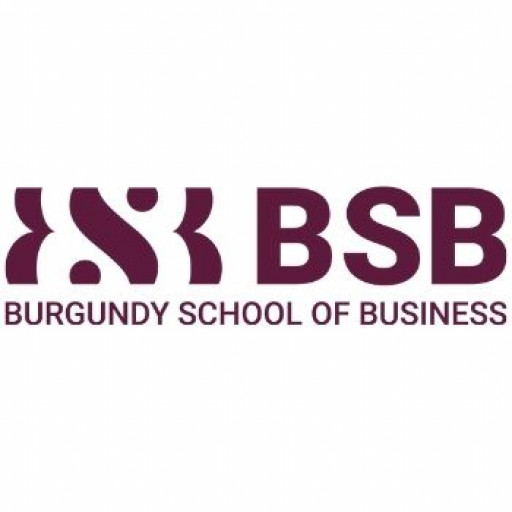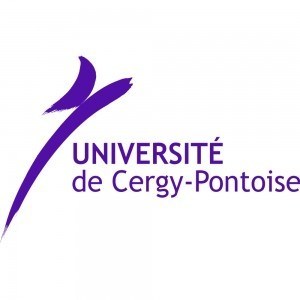Photos of university / #bsb.international
The MSc in Climate Change & Corporate Finance at Burgundy School of Business is a specialized graduate program designed to equip students with the knowledge and skills necessary to address one of the most pressing challenges of our time: climate change. This innovative program combines rigorous training in environmental issues with advanced financial and managerial expertise, preparing graduates to lead sustainable initiatives within corporations and financial institutions. The curriculum integrates core concepts of climate science, sustainable development, and environmental policies with a deep understanding of corporate finance, investment strategies, and risk management related to environmental factors. Students will explore the financial mechanisms that can support the transition to a low-carbon economy, such as green bonds, sustainable investing, and carbon pricing. The program emphasizes practical experience through case studies, industry projects, and internships, allowing students to apply theoretical knowledge to real-world situations. The faculty comprises experts from academia and industry, ensuring that students gain relevant insights and up-to-date knowledge. The program also addresses the regulatory frameworks, reporting standards, and stakeholder engagement strategies essential for effective sustainability management. Graduates will be prepared for careers in corporate sustainability departments, consulting firms, financial organizations, or policy-making bodies focusing on climate and environmental issues. Located in Dijon, Burgundy School of Business offers a dynamic learning environment complemented by a global network of alumni and industry partners. Students benefit from a multicultural setting, rich cultural experiences, and opportunities for international exchanges. With a focus on innovative solutions and responsible management, the MSc in Climate Change & Corporate Finance aims to foster future leaders who can drive sustainable growth and create positive environmental impact in the corporate world.
The MSc Climate Change & Corporate Finance at Burgundy School of Business offers a comprehensive curriculum designed to equip students with the knowledge and skills necessary to address the complex challenges of climate change within the corporate sector. The programme combines core principles of environmental sustainability with advanced financial management techniques, preparing graduates to become leaders in fostering sustainable business practices. Throughout the course, students explore the science and policy aspects of climate change, understanding its causes, impacts, and potential solutions. They delve into corporate strategies for integrating climate considerations into financial decision-making, learning how to evaluate environmental risks and opportunities. The curriculum covers topics such as sustainable finance, green investment, carbon accounting, and environmental, social, and governance (ESG) criteria, providing a holistic view of how businesses can contribute to a more sustainable future. Students engage in practical projects, case studies, and internships that enable them to apply theoretical knowledge to real-world scenarios. The programme emphasizes developing skills in strategic thinking, financial analysis, and stakeholder communication, all within the context of sustainability goals. Taught by experienced faculty members and industry practitioners, the course promotes a collaborative learning environment that encourages innovation and critical thinking. Graduates will be well-equipped to work in financial institutions, consulting firms, multinational corporations, and NGOs dedicated to climate action and sustainable development. Overall, this MSc programme aims to forge professionals capable of bridging the gap between environmental imperatives and financial strategies, fostering resilience and sustainable growth in the corporate world.
Program requirements for MSc Climate Change & Corporate Finance at Burgundy School of Business typically include a combination of academic prerequisites, language proficiency, application components, and other criteria. Applicants are generally expected to hold a bachelor's degree or equivalent from an accredited institution, preferably in fields related to business, economics, environment, or finance. Demonstrating proficiency in English is mandatory, often evidenced by standardized tests such as TOEFL or IELTS, unless the applicant's previous education was conducted in English. A strong academic record, including transcripts and degree certificates, is usually required to assess the applicant's suitability for the demanding curriculum. Additionally, some programs recommend or require work experience in relevant sectors such as finance, consulting, environmental management, or related fields, to enhance the learning experience and facilitate practical understanding.
Applicants typically need to submit a completed online application form along with a motivation letter explaining their interest in climate change and corporate finance, their career goals, and how the program aligns with their aspirations. Letters of recommendation from academic or professional references may also be necessary to attest to the applicant's capabilities and potential. The admissions committee may conduct interviews, either in person or via digital platforms, to evaluate motivation, communication skills, and understanding of the subject matter. In some cases, GMAT or GRE scores might be considered, although they are not always mandatory. The program encourages diversity and interdisciplinary backgrounds, seeking candidates with a passion for sustainability, finance, or environmental issues, alongside strong quantitative and analytical skills.
Applicants should also prepare a curriculum vitae (CV) detailing educational background, work experiences, language skills, and other relevant activities. Financial documentation proving the ability to cover tuition fees and living expenses might be requested, as well as proof of health insurance coverage, depending on the applicant's country of residence. It is advisable for applicants to review specific criteria listed on the official Burgundy School of Business website or contact the admissions office for detailed requirements, as these may vary year by year. Overall, successful applicants demonstrate academic excellence, motivation aligned with the program’s focus on climate change and finance, and the potential to contribute thoughtfully to class discussions and collaborative projects.
The MSc Climate Change & Corporate Finance program at Burgundy School of Business offers diverse financing options to support students throughout their studies. Tuition fees for this master's program are established by the university and are indicative of the institution’s standard fee structure for international master's students. Financial aid opportunities include partial scholarships awarded based on academic merit, leadership potential, and motivation, which are competitive and require an application process. Additionally, students may qualify for government or national scholarships, depending on their country of origin and eligibility criteria. Burgundy School of Business also collaborates with various financial institutions to provide loan schemes tailored for international students, offering favorable repayment terms and fixed interest rates. These student loans often require a guarantor or collateral, and applicants may need to demonstrate sufficient financial stability and academic progress to qualify. The university provides guidance and support services to help students navigate these funding options and complete the necessary paperwork. Some students may choose external sources of funding such as private scholarships, employer sponsorships, or family support to finance their studies. Cost of living in Dijon, where the university is located, should also be considered as part of the overall financing plan, including accommodation, everyday expenses, and insurance. The university's dedicated financial aid office offers personalized advice to prospective and current students to optimize their funding strategies. Overall, financing a master's degree in Climate Change & Corporate Finance at Burgundy School of Business involves a combination of institutional scholarships, personal savings, external funding sources, and possibly loans, depending on individual circumstances. Students are encouraged to start exploring funding options early to ensure a smooth academic journey without financial stress.
The MSc Climate Change & Corporate Finance at Burgundy School of Business is a specialized postgraduate program designed to equip students with the skills and knowledge necessary to address the financial and managerial challenges posed by climate change. This interdisciplinary program combines principles of sustainable development, environmental issues, and corporate finance to prepare graduates for careers that require expertise in integrating climate-related considerations into financial decision-making processes. The curriculum covers a broad range of topics, including climate policies, financial risk management, sustainable investment strategies, and corporate social responsibility. Students gain a thorough understanding of how climate change impacts global and local economies and learn how financial institutions and corporations can implement sustainable practices to mitigate environmental risks and capitalize on emerging opportunities in the green economy. The program emphasizes practical skills through case studies, projects, and internships, allowing students to apply theoretical concepts to real-world scenarios. The faculty comprises experienced academics and industry professionals who provide insights into the latest trends and developments in climate finance. Burgundy School of Business's strategic location in Dijon provides access to a vibrant academic community and numerous networking opportunities with environmental organizations and financial institutions. Graduates of this program are well-prepared to pursue careers in climate finance, sustainable investment firms, corporate sustainability departments, governmental agencies, and non-profit organizations. The MSc Climate Change & Corporate Finance also offers opportunities for international exchange and collaboration, reflecting its global outlook. The duration of the program is typically one year for full-time students, and it is taught primarily in English. The program aims to foster ethical leadership, strategic thinking, and innovative problem-solving in the context of climate change, ensuring that graduates are capable of making impactful decisions for a sustainable future.








